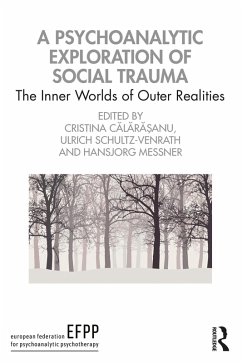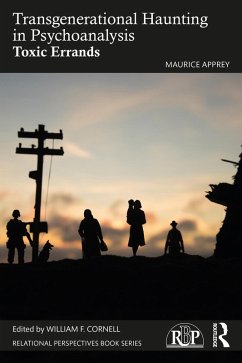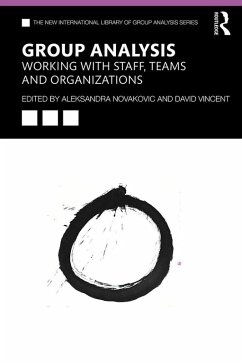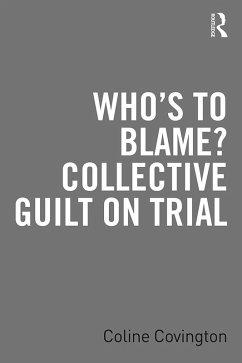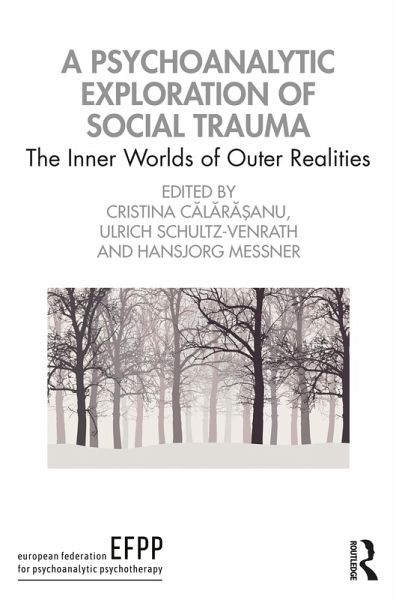
A Psychoanalytic Exploration of Social Trauma (eBook, ePUB)
The Inner Worlds of Outer Realities
Redaktion: Calara¿anu, Cristina; Messner, Hansjorg; Schultz-Venrath, Ulrich
Versandkostenfrei!
Sofort per Download lieferbar
31,95 €
inkl. MwSt.
Weitere Ausgaben:

PAYBACK Punkte
16 °P sammeln!
A Psychoanalytic Exploration of Social Trauma presents a thorough introduction to social trauma from a range of perspectives, exploring several key themes, specific causes and symptoms and clinical interventions.With chapters from a diverse range of authors, the book considers social trauma as it relates to stories and history, group identity, the consulting room, migration, and post-traumatic conditions. These topics are explored via a range of frames, including individual therapy, group analysis, social dream matrix, large groups, case studies, narrative recollections, and cinematographic ex...
A Psychoanalytic Exploration of Social Trauma presents a thorough introduction to social trauma from a range of perspectives, exploring several key themes, specific causes and symptoms and clinical interventions.
With chapters from a diverse range of authors, the book considers social trauma as it relates to stories and history, group identity, the consulting room, migration, and post-traumatic conditions. These topics are explored via a range of frames, including individual therapy, group analysis, social dream matrix, large groups, case studies, narrative recollections, and cinematographic expression. The book also considers the implications of new technology in causing and treating social trauma.
A Psychoanalytic Exploration of Social Trauma will be of great interest to psychoanalytic psychotherapists in practice and in training, psychoanalysts, and psychoanalytically informed professionals working with trauma.
With chapters from a diverse range of authors, the book considers social trauma as it relates to stories and history, group identity, the consulting room, migration, and post-traumatic conditions. These topics are explored via a range of frames, including individual therapy, group analysis, social dream matrix, large groups, case studies, narrative recollections, and cinematographic expression. The book also considers the implications of new technology in causing and treating social trauma.
A Psychoanalytic Exploration of Social Trauma will be of great interest to psychoanalytic psychotherapists in practice and in training, psychoanalysts, and psychoanalytically informed professionals working with trauma.
Dieser Download kann aus rechtlichen Gründen nur mit Rechnungsadresse in A, B, BG, CY, CZ, D, DK, EW, E, FIN, F, GR, HR, H, IRL, I, LT, L, LR, M, NL, PL, P, R, S, SLO, SK ausgeliefert werden.




